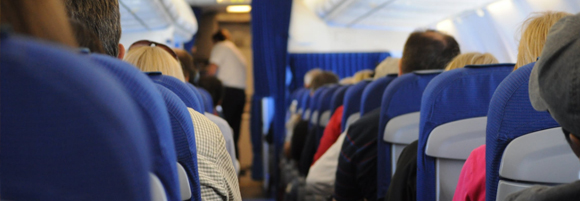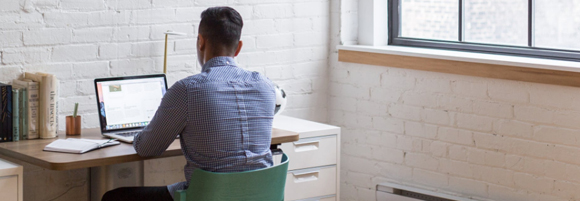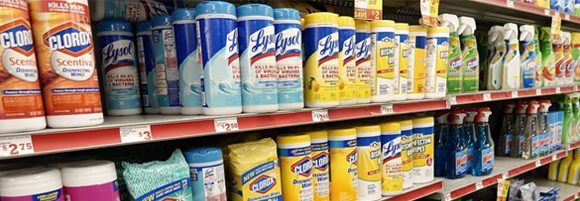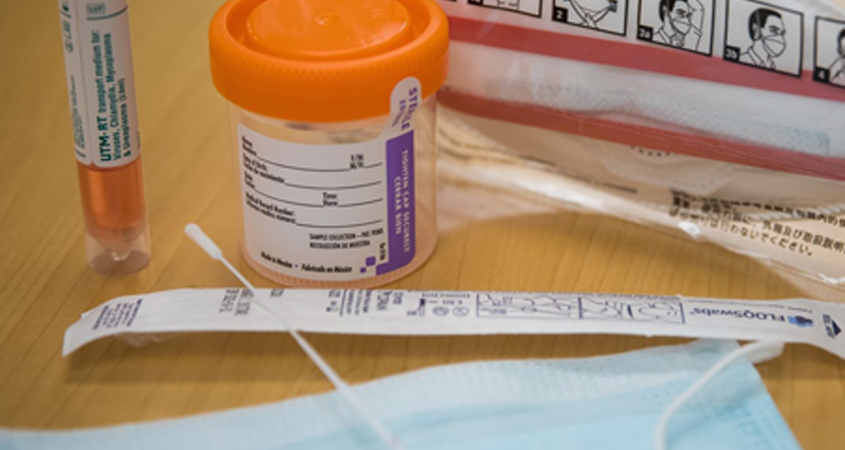As Covid-19 begins this week to impact the stock market, universities and quite simply day to day travel which we take for granted, I will try to continue to address questions that many of you are asking us. Certainly, some answers are clear, but we are now moving into grey zones. Our team will continue to do our best to stay current and remain aggressively innovative to help all of us ‘stay ahead of the curve’.
Update on the VIRUS
Last evening, I spoke to a Department Head at St Michaels Hospital. They are updating the hospital staff this morning with the following facts:
- When compared to the SARS virus, Covid-19 is more contagious but less lethal. However, it is more lethal (3-4%) than the common influenza virus (0.1%), especially to the elderly and those with pre-existing conditions, such as heart and respiratory diseases, diabetes, obesity, and/or on medications for immunosuppression.
- Data is now showing that Covid-19 is not aerosolized (airborne), meaning it doesn’t ‘live’ in the air, but rather it drops to surfaces and the ground. If someone sneezes with the droplets, it takes about 10 feet before it falls to the ground and is no longer airborne.
Hence, surfaces and ‘hand to face’ contact is the most common mode of transmission. What this means is the average person would not need a N95 mask. If you are concerned e.g. on a plane, on the TTC, or visiting elderly in a nursing home, protect you and others by wearing an ‘everyday’ mask. Wear disposable gloves if you are touching a number of foreign surfaces and then throw them away. This saves on using hand sanitizers all the time. Use your wipes regularly, especially if you decide to valet your car – the jockeys go from one car surface to another. - Symptoms to be generally aware of so you can sort it out (with our help):
- If you have a runny nose and sputum, you likely have a common cold
- Coronavirus pneumonia is a dry cough with no runny nose, often beginning with a sore throat and then a high fever
- If you have shortness of breath and difficulty of breathing, seek medical attention
Let’s Summarize the Recommendations so Far
- Have excellent health hygiene – including enough sleep, less alcohol and fewer empty calories. Increase the fruits and vegetables in your diet and keep up with your exercise.
ACTION: I would now recommend that you try to minimize working out in large gyms. Rather, use your home gyms because droplets do increase as people sweat and breathe deeply. - Take your supplements and augment your immune system – AHCC and Antioxidants. We are now all on back order for these products – we’ve truly emptied the shelves in Canada from Douglas Laboratories and AOR brands. We have a few left in our cupboards – if you’ve not got any at all, contact us. ACTION: If you are in the USA – stock up.
- Reminder that you should stock up on all your medications, as there may be category shortages.
ACTION: You should check your inventory – must have at least 90 days of medications on hand.
PERSONAL AND FAMILY TRAVEL
We’ve given you advice on wiping down the airplane premises. For those who must travel, do so now with caution. If you have a health condition that can reduce your immunity, please don’t go. When you are out of Canada – you may not land in a hospital that has a high level of care. And when you come home, you might need to go into self-isolation.

To those of you who have family/children coming home from HOT Zones – please self-quarantine. By the time March Break is finished, you may have just been in a HOT Zone without knowing it. This may play into planning to come home ‘early.’ This advice is applicable to all of you who are now in the US and thinking of staying there to ride this pandemic through. If you have a pre-existing health condition this may complicate your travel health insurance coverage. They may choose to not cover your Covid-19 hospital admission because they may deem your pre-existing condition as a cause for requiring hospital care.
ACTION: Plan ahead – you might want to come home early and change all your flights sooner rather than later. (We don’t know if there will be more travel restrictions especially if you are in a HOT Zone.)
I’ve just come home from NYC to attend a SPA show talk that got cancelled the evening prior. I stayed because I had some local meetings. While in Manhattan, I’m aware of the new cases rising in a suburb of NYC. Hence, I’m going to be mindful and work from home for a few days – Manhattan may be a newly discovered Hot Zone as testing increases.
ACTION: Call us because it’s a case by case decision. We can help you make the right decision about self-isolation for your family.
I’d like to also call attention to my belief that some of the smaller hospitals in the US are not ready. While it didn’t make national news, on local NYC news, there was a suburb hospital that wasn’t prepared, and 40 staff members are now in quarantine due to exposure. This should NEVER have happened. However, private hospitals, gowns, gloves, and masks are costly. There may have been too much risk taken. Here’s where I do believe as a national health system, Canada is in better shape right now. We are not penny pinching on supplies.
ACTION: If you are already abroad or will be, locate a hospital system that is linked to a well funded/teaching hospital system – likely better prepared (I hope!)
READ this opinion piece – great summary about USA preparedness or their lack of – hence travel now to USA WITH CAUTION. I agree with Martin Makary MD, MPH, “COVID-19: Why I’m Very Concerned”
BUSINESS PREPAREDNESS
While I’m not an HR expert, as Chief Wellness Officer at TELUS, we spent a lot of time regularly updating a policy for situations like we have now. If you don’t have one, start now. Hire someone to create a Crisis Plan for you.
Here are things I need to assume you have in place already:
- Staff will work from home – everyone has a laptop to be able to work remotely
- If you need staff in the office – consider splitting the shifts and extending office hours
- Insist if an employee is sick or even thinks they are sick – even with a cold – don’t come into the office
- Stop all travel, if possible – frankly I’m not sure there is any urgent business travel anywhere now
- Suspend large group meetings – and all conferences
- Clean the office TWICE DAILY (first thing AM and after lunch)

While Virginia and I were working late one evening last week, the cleaning team showed up. As they started cleaning – both of us jumped up around the same time to say STOP. Why? The cleaner was using the same cloth and ‘dusting’ and ‘wiping’ her way from one desk to another. This is NOT acceptable during a crisis like this. We’ve told the building to only come in to vacuum, clean floors and take out garbage.
What all workplaces need to do daily:
- Once inside the office, wash your hands for at least 20 seconds and continue to do so several times during the day, especially if you are touching/handling shared devices with the public
- Wipe down your cellphones, computer keyboards, laptops, fax/scanner/printer buttons several times or at frequent intervals. Don’t forget the doorknobs too
- Each person is responsible for their workstation hygiene. Clean ALL surfaces including the chair. This is especially important these days with shared spaces. The entire work area should be wiped down at least twice daily, especially when clients come in
- Ideally the alcohol gel should be used and be accessible – I’ve seen bottles hidden for esthetic reasons – not the right idea
- Refrain from handshakes – to reduce the need to use hand sanitizer all day – too drying!

Ideas if you run out of cleaning wipes? I’m now using concentrated products that can be diluted into a spray bottle – more economical and equally as effective. Last but not least – Bleach works! But MUST BE DILUTED! Also consider adding Lysol spray to the rooms where large groups have just convened or if you are worried someone in your office space is sick.
TESTING FOR COVID-19
At this time, the only place you can get tested safely is in a hospital. Our team was not able to access any testing kits. Public Health Dept is controlling the inventory, which I do agree with. IF you are concerned, you should be going to a place where you will be taken care of properly and not infect healthcare professionals who are not prepared for COVID-19.
Who should be tested? At this time, those who are showing symptoms of bad cold or ‘flu’ – runny nose, cough, fever AND you may be in contact with a community at high risk and/or recent travel abroad where there are high number of cases.
Ontario Public Health link to how they are defining the various categories of individuals regarding their status and Covid-19.
ACTION: If you are concerned, contact us and we can decide together. We are here for you and your family.
Stay in touch and keep track of the cases. REMINDER to keep this link: John Hopkins CSSE team. It’s no longer a containment task in the USA. Cases will go up. It’s expected. Be aware of the new hot spots and get out asap!
And BTW – stock up on pasta – we might just run out. (Just trying to lighten up this bulletin.) Blessings to those in Italy and beyond.



